We may not have the course you’re looking for. If you enquire or give us a call on +357 26030221 and speak to our training experts, we may still be able to help with your training requirements.
Training Outcomes Within Your Budget!
We ensure quality, budget-alignment, and timely delivery by our expert instructors.
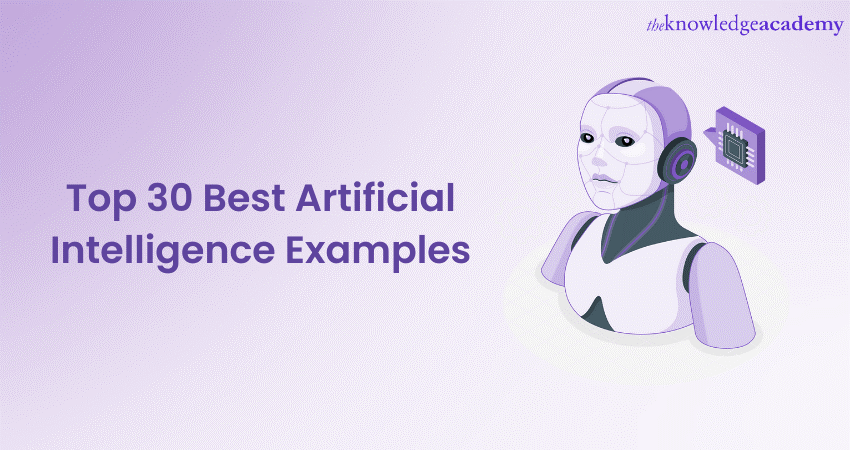
The effects of Artificial Intelligence (AI) and how it will influence our future are topics of discussion throughout the tech industry. At the same time, we may believe that Artificial Intelligence will not significantly impact our lives for at least a few years. But did you know that AI influences our choices and way of life daily?
This blog will provide a comprehensive list of real-life Artificial Intelligence examples we use in our daily lives.
Table of Content
1) What is Artificial Intelligence?
2) Examples of Artificial Intelligence
a) Maps and navigation
b) AI robotics
c) Facial detection
d) AI in travel and transportation
e) Text editors and grammar checks
f) AI in retail
g) Chatbots
h) Google recorder and transcribe
i) Gaming
j) Google Lens
3) Conclusion
What is Artificial Intelligence?
The launch of ChatGPT and the subsequent talks on the dangers of utilising the AI tool improperly resurfaced the debate on the use of Artificial Intelligence. Even yet, you have interacted with AI at least once in the previous five minutes. It is due to AI’s ability to spread widely that there are seemingly endless examples of it in everyday life.
It is necessary to understand precisely what Artificial Intelligence is (and is not) before we can determine its effect on our lives. AI involves creating computer systems that can carry out activities typically necessitating human intelligence, including tasks like recognising visuals, understanding speech, making decisions, and translating languages.
Natural language processing (NPL), deep learning, and machine learning (ML) are the three key technologies that constitute Artificial Intelligence.
Machine learning is the method through which computers learn to enhance their responses in various scenarios by utilising organised datasets and ongoing inputs from both humans and algorithms.
Deep learning learns through representation instead of structures, it is frequently believed to be a more sophisticated form of machine learning. Computer sciences use NLP as a linguistic tool. It allows computers to understand human language.
Artificial Intelligence, in its fundamental form, is the process by which a computer works on data through the analysis of statistics, allowing it to comprehend, examine and learn data using specifically created algorithms. This process is automated.
The focal point of AI programming is based on the aspects of cognition, which are:
a) Learning processes: The collection of data and the development of rules for turning it into usable information are the core of this section of AI programming. These rules, or algorithms, provide computing devices with detailed instructions for carrying out a certain task.
b) Reasoning processes: This section focuses on selecting an accurate algorithm to attain the desired result.
c) Self-correction processes: This section of AI programming focuses on fine-tuning algorithms regularly to confirm that they provide the most reliable results.
Examples of Artificial Intelligence
Across a wide number of industries, AI has already had a positive impact. It can automate procedures to relieve staff members of pointless work, offer students individualised learning alternatives, allows cybersecurity firms to deploy quicker solutions, and assist fashion firms in creating better-fitting garments for their customers. All of these are just the beginning!
The larger role of technology in future and its integration with various sectors will shape the future. The role of Artificial Intelligence in this world will have a crucial context in all fields, from space to smartphones to agriculture and finance.
Let's take a deeper dive into knowing real-life Artificial Intelligence examples we use daily.
Get your Artificial Intelligence & Machine Learning today and unlock the power of understanding the larger AI network!
1) Maps and navigation
The decision to travel to a new location no longer takes much contemplation. We no longer need to rely on perplexing address directions; instead, we can just open a map plication on our phone and enter our destination
How does this application help discover the best route, the correct direction, and even the existence of obstacles and traffic jams? A few years ago, the global positioning system (GPS) was the only navigation method available. However, consumers can now have a much better experience in their circumstances. Thanks to Artificial Intelligence!
The software has received training to recognise and comprehend traffic. As a result, it recommends the best strategy to prevent gridlock and traffic jams. The AI-based technology also provides customers with precise information on the travel distance and time to their destination.
Based on the traffic conditions, it has been trained to compute this. The adoption of comparable AI technology has led to the emergence of numerous ride-hailing applications.
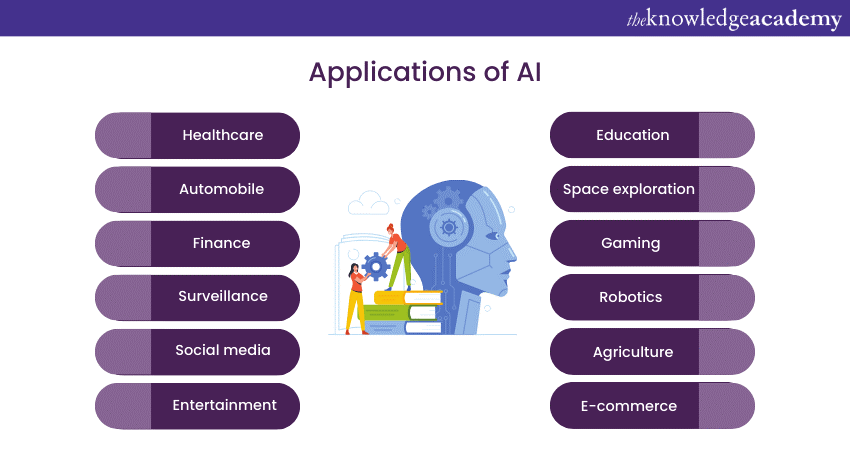
2) AI robotics
AI-powered machines can solve various problems and think at some level in their capacity. Because of this, Artificial Intelligence is often assigned to perform various complex tasks. It often engages the assembly line of the car manufacturing company Tesla to perform the role of a teacher in Japan. There are plenty of such examples from our surroundings.
One such example is the iRobot which is used as a smart vacuum that engages AI to analyse the size of the room, detect an obstacle and determine the best possible routes in the cleaning process. It requires no human intervention for its function.
3) Facial detection
Two applications of AI currently crucial to our daily lives include face ID for unlocking our phones and using virtual filters on our faces while taking pictures.
Face recognition is used in face identification, making it possible to identify any human face.
Intelligent machines frequently match-and, in some instances, even outperform-human performance!
To construct a depth map of your face, Apple’s Face ID projects and analyses hundreds of invisible dots that are created while also capturing an infrared image of the face. Although it also uses hardware for capturing images, the AI component is still very much present.
Artificial Intelligence and other technologies that fall under its purview enable facial recognition to create three-dimensional images. The following time you unlock your phone, remember that you just used Artificial Intelligence.
4) AI in travel and transportation
AI is becoming a trend in the travel and tourism sector. Its function begins from planning and making travel arrangements to pitching the best and most ideal path for the way back home! AI is making human life easy and simple.
AI-powered chatbots are used for customer business interaction which often takes less responsive time and provides customer services at a better price. For example, SmarterTravel recognises itself as a travel hub that provides its users with travel tips, guides, hotel recommendations, and other insights. It provides a personalised user experience based on search data.
5) Text editors and grammar checks
Various in-built or downloadable text editors or auto-correcting tools allow users to spell check, help with readability, plagiarism, and even writing blunders!
It ought to have taken us a long time to learn and become proficient in our language. However, the artificially intelligent system frequently uses deep learning, machine learning, and natural learning to identify incorrect language use and suggest change.
Collaboration between linguists and computer scientists aims to teach computer grammar like we did in school. Large amounts of data in format machines can understand are sent to them regularly. As a result, the editor will highlight the single misspelt coma in red and provide suggestions.
6) AI in retail
Have you ever scrolled to find your favourite product at the top of a site? Thanks to Artificial Intelligence! Businesses and retail companies employ the use of Artificial Intelligence, which can predict customer preference. This is usually done by collecting user data, allowing a customer-centric shopping experience.
Amazon is at the peak of the e-commerce industry, which uses AI for a quality user experience. It employs AI for the company’s recommendation for the users and uses AI for robots in its warehouse.
7) Chatbots
We are all accustomed to using different chatbots on the internet. There are various bots, from the most basic customer care bot to one miming human speech. Did you know that many bots you have been employing are manifestations of Artificial Intelligence?
Customer service interaction can be time-consuming and frustrating for the users. It’s a costly, ineffective department that is difficult to manage for businesses. AI chatbots are one increasingly common artificially intelligent remedy for this. Machines can receive and track orders and answer frequently asked inquiries and direct calls. Thanks to programmed algorithms.
ChatGPT is an excellent illustration of this. Users initially used this chatbot as another online friend. You'll be amazed to learn that ChatGPT is a chatbot with Artificial Intelligence. OpenAI’s large language model powers ChatGPT. Additionally, the business has introduced the GPT-4, an LLM that Plus users can purchase.
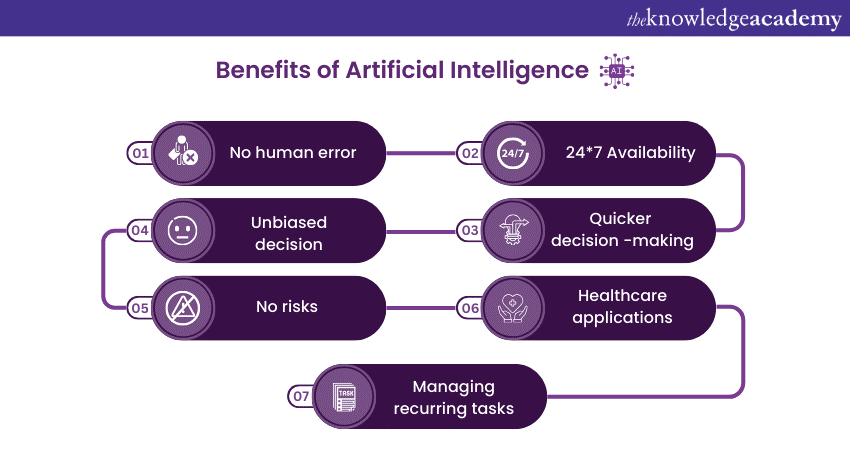
8) Google Recorder and transcribe
Speech detection is one such area where the use of AI is best put in use. Google Recorder is the finest example of it, which leverages AI to transcribe speeches in real-time. Google recorders employ machine learning, which is considered a subset of Artificial Intelligence.
This often helps in the transcribing process without connectivity to the internet. The process usually has pinpoint accuracy. Along with that, the application also has live captions on browsers. This allows the application to listen to the internal audio and provide live captioning. All of this is achieved through the adoption of Artificial Intelligence. )
9) Gaming
Artificial Intelligence and the gaming industry have always had a link from time. However, one of AI's profound impacts and influence has been in the gaming industry in recent years. For example, DeepMind’s AlphaGo software which has AI as its base is known for defeating people at games. First encounter assault recon, also known as F.E.A.R., is another example of the collaboration between AI and the gaming industry.
10) Google Lens
Using optical recognition technology, google lens employs services rooted in Artificial Intelligence. It allows users to search through images. This is accurate and provides information in a few seconds.
Google Lens can also perform OCR; thereby, it can extract texts from images. Tesseract and TensorFlow are other OCR software that are available performing similar functions. These applications are built on Artificial Intelligence to detect text on a photo.
Other applications such as Adobe Scan and Microsoft Office Lens use smart crop function that allows precise edge detection.
11) Space exploration
Space exploration and Outerspace discoveries require processing and investigating huge sets of data. AI and ML are the best platforms for managing a high level of information at a huge scale. Information received from the Kepler telescope was thoroughly processed using AI to differentiate an inaccessible eight-planet solar system.
12) Fall detection
The fall detection feature alerts the nearby emergency team as it detects a hard fall. Its functions depend upon reading the data from the accelerometer and gyroscope. Artificial Intelligence technology is adopted here to sense the fall.
13) Car crash detection
Car crash detection employs machine learning models which are trained for crashes. Once the car crashes, it alerts the nearby emergency team. It sends the location and the user's chosen contact details to the emergency team.
14) AI image generator
Did you know that AI can generate images? With the advent of Artificial Intelligence, image creation has become an easy task. Image generation earlier required imagination. However, AI image generators can now develop various creative images with just a prompt.
These image generators often employ various AI technologies to generate images. For example, Midjourney is an application for image creation that Artificial Intelligence fuels. It creates vivid and imaginative photos that are equally on par with images created by human artists. Advances in technology will see a future where AI will rival the world's creative industry.
15) Digital assistants
We frequently turn to ordering digital assistants to complete work on our behalf when we are busy. You might ask the assistant to phone your mother while you are driving. An Artificial Intelligence that can access your contacts can recognise the word ‘mom 'and dial the number.
These assistants determine what you are asking for and try to get it for you using NLP, ML, statistical analysis, and algorithm execution. The functioning of voice and image searches is very similar.
Another AI-based solution that makes the most of AI’s full potential is Google Duplex. In 2018, Google showed off a duplex that could reserve a restaurant table for you. It imitates human speech, comprehends context, and responds spontaneously like a human would. A seat at a salon, a movie ticket, and other things may all be reserved using a Google duplex.
This application is currently only in English and available in the United States.
16) Music and media services
Another example of using Artificial Intelligence is in the music and media industry. Spotify or YouTube employs AI in the making enhance user experience. It often involved using AI and ML to add new artists and music to users’ playlists.
Its function is determined by the user data, which is analysed to generate user behaviour. This allows the software to know exactly what the user wants to hear or watch.
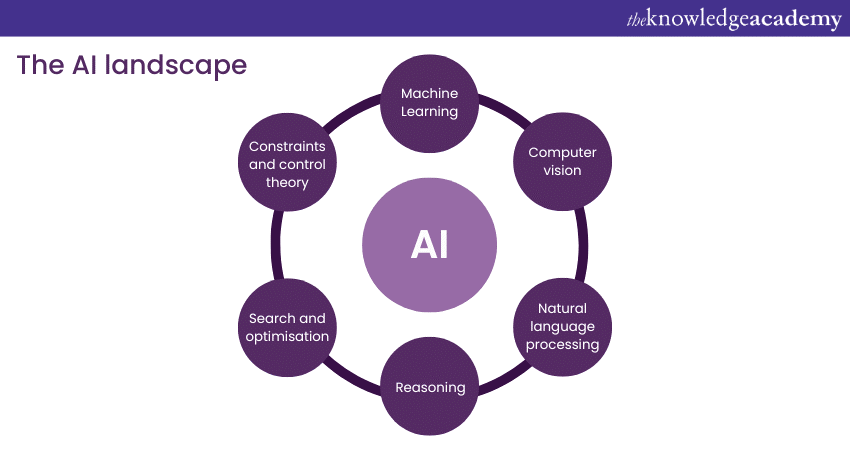
17) Online payments
Artificial Intelligence has played a role in your avoidance of physical bank visits over the last five years, as the traditional practice of going to the bank for every transaction is a significant time-consuming activity. Banks are employing AI to simplify the payment process, thereby enhancing customer convenience.
Through the application of Artificial Intelligence in areas like security, identity management, and privacy safeguards, sophisticated algorithms have enabled the ability to perform tasks like depositing money, transferring funds, and opening accounts remotely. By monitoring patterns in credit card expenditures, potential fraudulent activities can be detected. Another instance of Artificial Intelligence in action involves algorithms being cognizant of a user's purchasing preferences, including the items bought, timing, locations, and typical price ranges.
When an uncommon behaviour occurs that is away from the user profile, the system generates an alert which is then used to verify transactions.
18) Adaptive charging
Did you know that adaptive charging on your mobile phone uses Artificial Intelligence? The use of adaptive batteries on Android has been there since Android 9. This helps in understanding usage patterns and, using this data, enhances applications.
The target of this technology is to increase the lifespan of your phone. This adopts Artificial Intelligence technology along with machine learning to achieve it.
19) Security and surveillance
There is no doubting the usage of a widespread monitoring system and AI is playing a significant role. Using AI makes perfect sense because it is impossible for humans to continuously watch several monitors for a long time. It won't be long before an AI, rather than a human, is watching all the security camera feeds due to technological advancements.
Object detection and facial recognition are deployed for this purpose. This is the future, even if it will be some time before AI is fully deployed for security and surveillance measure.
20) Smart email application
Do you ever find your email box cluttered with messages? Well, AI has a solution for that too! Applications such as Spark remove spam emails or undesirable messages from the clutter. This allows the user to have a hassle-free experience in managing the mailbox.
The ‘Smart Reply’ adopted by Gmail is another illustration of quick response that helps users answer a mail. This application uses AI to remove the email's content and provides context-based answers.
21) Smart keyboards
The application of AI can be seen in smart keyboards. It predicts the user's next word or emoji based on the composing style of the user. It not only predicts but also detects misspellings and errors in texts.
22) Smart speakers
Not in vain, many users believe smart speakers are ready for a significant technological explosion. They can also send quick messages, make updates, monitor the weather, and access the most recent news, controlling smart home devices. Amazon Echo is an example of smart speakers.
23) Smart home devices
Artificial Intelligence is now part of our home! Did you know that most of the smart home devices we purchase employ Artificial Intelligence for their function? It learns user behaviour and accordingly changes its settings to enhance the user experience.
It also consists of voice assistants that make the process more seamless. Examples such as smart thermostats or lights make human interaction with home easier.
24) Search and recommendation algorithm
Whenever we wish to listen to our favourite music album, binge-watch movies, or do a quick online shopping, have you ever encountered the things recommended to us that perfectly match our interests? Well, that’s assisted by Artificial Intelligence!
These sophisticated recommendation engines examine our online behaviour and interests to show us related materials. We can have a personalised experience. Thanks to Artificial Intelligence! The data is generated from the front end, later saved as big data, and then analysed with machine learning and deep learning.
It can then forecast your tastes and offer suggestions to keep you engaged without forcing you to hunt for other activities. Artificial Intelligence can also enhance the user experience of a search engine. Usually, the top search results include the answer we are looking for. Ever wondered why does this happen?
Data is generally supplied into a quality control algorithm to separate low-quality, SEO-spammed content from high-quality content. This helps to produce search results in an ascending order based on quality for the best user experience. Natural language processing technology helps this application understand humans, as search engines are composed of codes.
By aggregating the most popular queries, they can anticipate what the user will ask before they start typing.
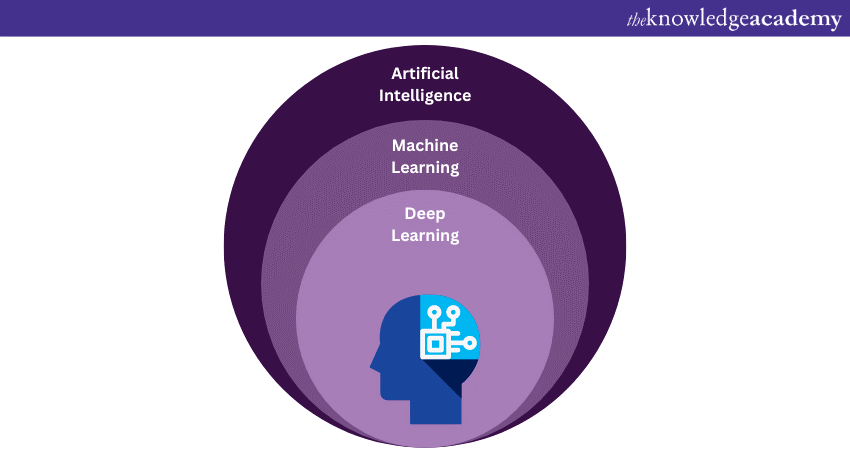
25) Social media
To keep you engaged and plugged in, social media platforms utilise AI to monitor content, recommend connections, and send adverts to specific users, among many other functions.
Using visual image recognition and keyword analysis, AI algorithms can quickly identify and remove problematic posts that violate the terms and conditions. Although a crucial part of this process, deep learning goes beyond its neural network design.
Social media businesses employ AI to connect users to advertisers and marketers to keep them engaged with the product. AI can recognise the kind of content that resonates with a user and can recommend related content to them.
26) Autonomous vehicles
When it comes to AI, the use of this technology by makers of smart cars is the best and most noticeable example. Using a fully autonomous automobile was once only a dream, but companies such as Tesla have made a huge leap in the field due to technological advancement. Tesla cars show how AI can influence our daily life.
The greatest example of how AI is affecting our life is Tesla automobiles. Did you know that Tesla vehicles are connected, and the information your vehicle learns is shared across all other Tesla vehicles? Well, it is!
27) Banking and finance
The banking and finance sector, which greatly influences the world, uses Artificial Intelligence for customer service, investment, and protection from a scammer. Automatically generated messages or emails that we receive are an example of AI at work.
AI is now trained to detect vast amounts of data and identify patterns to detect scams and fraudsters. Banks also employ AI for their customer services.
28) Healthcare
Infravision uses deep learning and AI to save lives in China, where there isn’t enough radiologist to handle the high population screening demand. Every day, radiologists must evaluate many scans, which is tedious and can lead to mistakes due to human fatigue.
Infervision taught and instructed algorithms to augment radiologists’ jobs, enabling them to more accurately and proficiently diagnose cancer. Google’s DeepMind has inspiration in neuroscience. Through this, it focuses on creating a machine that can reproduce thinking processes. Previously, DeepMinds has successfully beaten people at various games. This is believed to be a revolution in the field of healthcare.
29) Online ads
The biggest user of AI is the online advertising sector, which not only utilises it to track user statistics but also advertises based on those facts. If AI is not adopted, the online advertising sector will face difficulties since people will be exposed to irrelevant commercials.
AI has got so excellent at figuring out our interests and sending us adverts; the next time you visit the internet and come across advertisements or product recommendations, keep in mind how AI is altering your life.
Want to grow and adapt to future technology? Get started now on Introduction To Artificial Intelligence Training
30) E-Commerce
Web-based businesses often employ Artificial Intelligence to improve sales and help in creating long-term consumer relations. They also use various chatbots to collect urgent information and predict purchases to enhance user experience.
Conclusion
These examples of using Artificial Intelligence in diverse sectors are talked about globally. Nearly every part of our life is influenced by Artificial Intelligence. You might get recommendations based on your user behaviour, and will be monitored using AI cameras. Your smartphones and the time spent on social media generate data sets that later impact your life. So, what do you think about the role of Artificial Intelligence in our lives?
Frequently Asked Questions
Upcoming Data, Analytics & AI Resources Batches & Dates
Date
 Introduction to AI Course
Introduction to AI Course
Fri 24th Jan 2025
Fri 28th Mar 2025
Fri 23rd May 2025
Fri 25th Jul 2025
Fri 26th Sep 2025
Fri 28th Nov 2025







 Top Rated Course
Top Rated Course



 If you wish to make any changes to your course, please
If you wish to make any changes to your course, please


